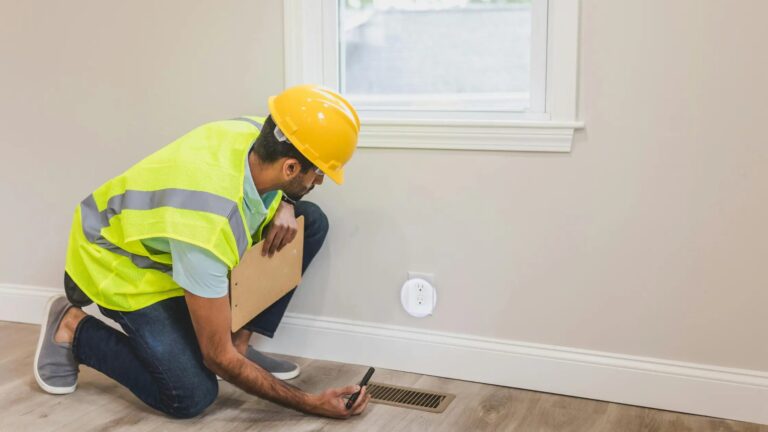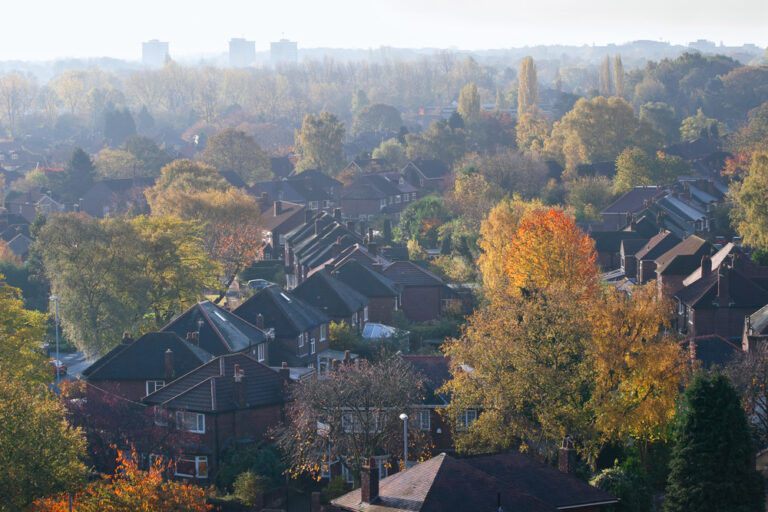Landlords have a long list of priorities to keep on top of, but increasingly, environmental concerns are emerging to the forefront. With shifting regulations and the UK’s Net Zero targets on the horizon, now is the time for landlords to re-strategize and think ‘green’.
Here is everything you need to know about your responsibilities regarding environmental protection.
Related: How to make your property more sustainable
Eco-friendly materials
Renovating your property between tenancies is a great way to make your property marketable and keep up with local competitors. Whether it’s a simple paint job or a full refurbishment, try to use eco-friendly materials wherever possible to lower your carbon footprint.
Paints
Repainting between tenancies is likely one of the most common updates you’ll need to make to your property, so opt for eco-friendly paints. Low-VOC (volatile organic compounds) or no-VOC paints are often made with plant-based ingredients instead of harmful toxins and solvents.
Flooring
Naturally, carpets in a rental home may require the occasional disposal, so opt for natural fibres and pads made from recycled materials. For hard flooring, there are also several renewable options such as bamboo, cork, or natural linoleum.
Insulation
Insulating the home will increase its energy efficiency, but some insulants like foam are made with toxic chemicals. Consider using fibreglass, cellulose, or reflective insulation, as these contain recycled materials.
Related: Replacing fixtures and fittings in your rental property
Meeting EPC requirements
Legislation regarding EPC ratings has changed several times over the last few years, but the overriding incentive remains: Homes in the UK need to be greener.
An EPC rating (Energy Performance Certificate) measures the overall energy efficiency of a home using a band system with ‘A’ being the highest and ‘E’ being the current minimum for rental homes in the UK. While this minimum is set to be raised to ‘C’ in the future, the outlook for this is still unclear.
However, you should still work towards future-proofing your property by raising its EPC rating with one or several of the following measures:
-
Insulating the walls, lofts, roofs, and floors
-
Double or triple-glazing the windows
-
Switching to LED lighting
-
Replacing old boilers and heating systems with energy-efficient models such as air source heat pumps
-
Installing renewable energy sources like solar panels
Related: Everything you need to know about EPCs
Renewable energy sources
The most impactful step you can take as a landlord is to switch to renewable energy sources for your rental properties. This will drastically shrink the carbon footprint of each home you update as solar, geothermal, and wind power can generate electricity without emitting extra greenhouse gases.
Solar panels
Roof solar panels convert sunlight into electricity, allowing your tenants to save on energy bills. Solar panels are extremely marketable because of this and therefore may be a worthwhile investment.
Smart thermostats
Smart thermostats are easy to adjust and program, allowing tenants to keep on top of their energy usage. They’re also better at regulating temperature compared to manual thermostats, which results in less wastage.
Energy-efficient appliances
If your appliances are outdated, consider swapping them out for ENERGY STAR models. There is a huge range of energy-efficient washing machines, ovens, fridge-freezers, and dishwashers to choose from, all of which only use a fraction of the electricity compared to their conventional counterparts.
Related: A landlord’s guide to property inspection
Green regulations and incentives
As a landlord, it’s important to stay on top of green regulations and incentives as both emerge rapidly in today’s rental market. There are plenty of green energy tax incentives, grants, and rebates to look into such as the ECO+ scheme and the Boiler Upgrade Scheme.
An expert letting agent can help you stay clued into government resources and any new regulations or legislation concerning your role as a landlord, allowing you to save money and continue operating compliant and ethical rental homes.







